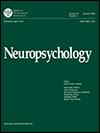How do I find help for anxiety?
Anxiety can be an incredibly difficult and isolating experience, but it doesn’t have to be. There are numerous resources available to help you manage your anxiety and find coping strategies that work for you. Here is a guide to some of the most effective ways of finding help with anxiety. First, talking to friends and […]
How do I find help for anxiety? Read More »






